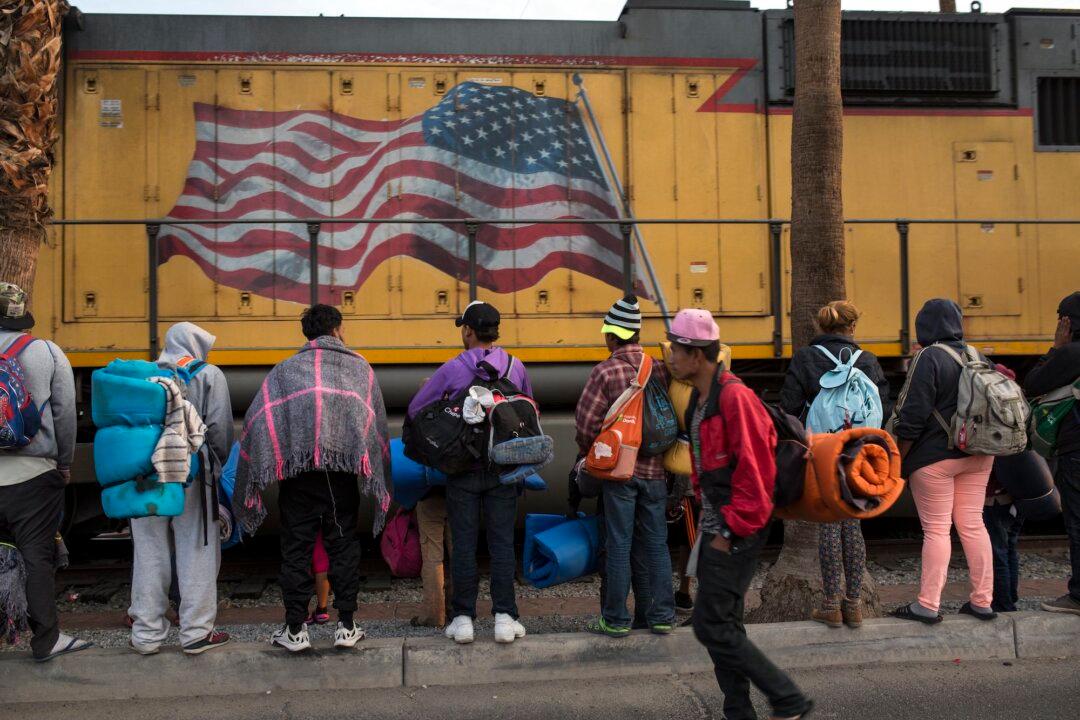An immigrant advocacy group has claimed that some members of the migrant caravan, now in Tijuana, Mexico, after streaming north from Central America, have expressed the intent to rush the U.S. border en masse.
“They have that intention,” Sergio Tamai, a founder of Angels Without Borders, told Telemundo 20 in San Diego on Nov. 22. “I believe that thousands could make that jump.”





